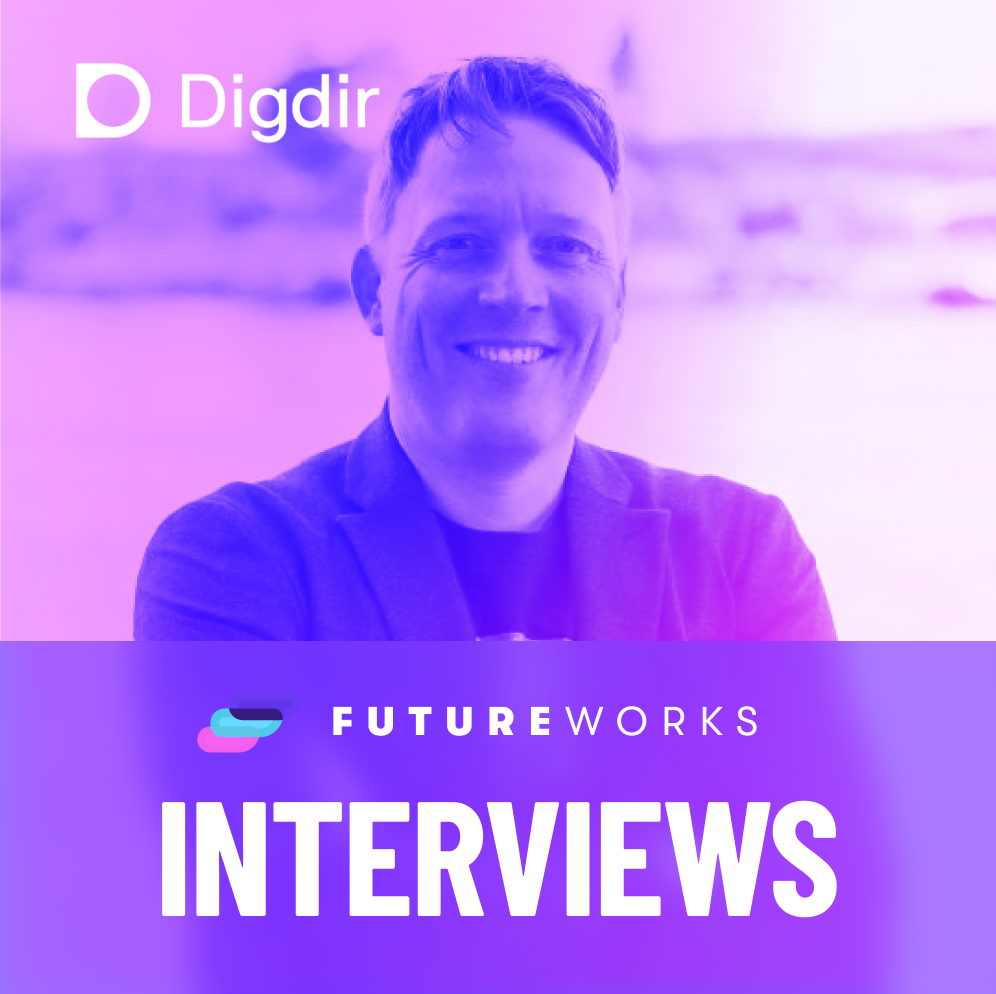
Today, I have the pleasure of speaking with Andreas Rafaelsen
who is Department director at the Directorate of Digitalisation in Norway, a valued customer of Futureworks.
Andreas Rafaelsen has worked with the development of Altinn since 2010 and has held roles as architect, solution manager, and most recently head of the development section since 2018.
He also has several years of experience from Kongsberg Spacetec, as project manager and developer.
Rafaelsen holds a degree in computer science from the University of Tromsø.
Let’s delve into their experience with implementing and managing OKRs effectively with the help of Futureworks.
“Futureworks has been a game-changer for our OKR journey! Their software is so easy to use, and their consultancy services are top-notch. With their help, we’ve seen real results and improved transparency in our organization. Don’t miss out on the chance to elevate your OKRs with Futureworks!”
Andreas Rafaelsen – Department director at the Directorate of Digitalisation
Kim Leinan: Can you share with us some of the specific challenges your organization faced with OKRs before utilizing Futureworks’ software and onboarding services?
Andreas Rafaelsen: Absolutely. Before partnering with Futureworks, our main struggles revolved around the lack of visible OKR dependencies and low compliance with OKR principles and rules. We found it challenging to set meaningful OKRs aligned with our organizational objectives.
Kim Leinan: How did Futureworks’ software and onboarding services help address these challenges?
Andreas Rafaelsen: Futureworks’ software provided an intuitive interface that simplified OKR maintenance and enhanced transparency across teams. Their onboarding team facilitated workshops, helping us define meaningful OKRs aligned with our organizational objectives and provided insights into setting measurable key results.
Kim Leinan: That sounds promising. Can you share any measurable outcomes or achievements directly attributed to the combined use of Futureworks’ software and onboarding services for OKRs?
Andreas Rafaelsen: Certainly. Through the combined use of Futureworks’ offerings, we witnessed increased knowledge and compliance with OKR principles, improved visibility into dependencies and progress, and enhanced alignment of OKRs with our organizational objectives.
Kim Leinan: How would you describe the overall synergy between Futureworks’ software and onboarding services in optimizing your OKR process?
Andreas Rafaelsen: The synergy between Futureworks’ software and onboarding services was excellent. The intuitive software interface facilitated tracking, monitoring, and progress evaluation of OKRs, while the onboarding team provided valuable insights and recommendations for refining our OKR strategy and implementation.
Kim Leinan: Were there any particular features or functionalities within Futureworks’ software that stood out to you as especially beneficial for OKR management?
Andreas Rafaelsen: Absolutely. Features such as OKR check-in meetings, visualization tools, dashboards, and the overall focus it creates were especially beneficial for our OKR management.
Kim Leinan: Lastly, would you recommend Futureworks’ combined software and onboarding services to other organizations seeking to improve their OKR implementation and management?
Andreas Rafaelsen: Without a doubt. I highly recommend Futureworks’ combined offering to any organization looking to enhance their OKR implementation and management. The integration of theory, implementation, and tools in one package proved invaluable for driving our organizational success.
Kim Leinan: Thank you for sharing your insights and experiences with us. It’s clear that Futureworks’ software and onboarding services have made a significant impact on your OKR journey.